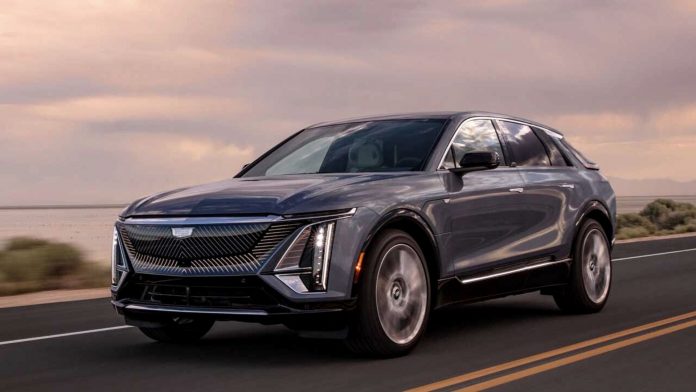The automotive industry now knows more about which vehicles will and won’t be eligible for the electric vehicle tax credits starting on January 1, 2024, due to the finalization of the regulations surrounding them. Many Ford, Tesla, and General Motors models will lose their credits—at least for now.
The tax credit program, which was expanded to include nearly all EVs on the market in January 2023, is currently being tightened to prioritize vehicles whose battery components aren’t produced in China or other “foreign entities.”
Automakers affected:
On December 21, GM announced that it anticipates the Cadillac Lyriq and Chevrolet Blazer EV will no longer be eligible for next year’s U.S. EV tax credit. GM said, “After reviewing Treasury’s long-awaited proposed guidance, we believe the Cadillac Lyriq and Chevrolet Blazer EV will temporarily lose eligibility for the clean vehicle credit on January 1, 2024, because of separators and electrolytes.” Interestingly, GM remains committed to “providing the equivalent EV tax credit purchase amount for any vehicles that became ineligible due to the new guidelines” starting in January.
Furthermore, Ford is no longer eligible for several important EVs. The company declared that the $3,750 tax credit will be removed for the E-Transit electric van and the Mustang Mach-E in 2024. Additionally, the $7,500 incentive will no longer be available for the plug-in hybrid Lincoln Aviator Grand Touring. The $7,500 tax credit for the F-150 Lightning will remain, and the $3,750 incentive for the plug-in hybrid Ford Escape and Lincoln Corsair Grand Touring will stay.
Regarding Stellantis, it anticipates no modifications to its plug-in hybrid vehicles. The Jeep Wrangler and Grand Cherokee 4xe SUVs should continue to be eligible for a $3,750 incentive, while the Chrysler Pacifica minivan should still qualify for a $7,500 rebate.
Meanwhile, these adjustments affect Tesla as well. We know the $7,500 incentive for the Tesla Model 3 RWD and Long Range models will expire in January because the batteries are made in China. Still, according to Tesla, the Model Y may also see comparable cuts.
The tax credit for the next year has certain benefits. At the moment of sale, qualified customers will receive an instant credit that they can use as a discount or to claim on their taxes. The major pain point is that the list of EVs eligible in 2024 will be much smaller due to increased regulations on battery components and minerals.






